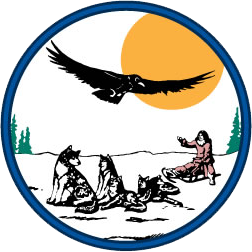Family Engagement
The mission of the Yukon-Koyukuk School District, in active partnership with its families and communities, is to provide our students with the skills and knowledge necessary to become contributing members of their families, communities, and society.
Kerry Boyd, Superintendent
Telephone: (907) 374-9400
Fax: (907) 374-9444
Important Roles for Families at School: Many parents perceive that they do not have meaningful, important roles to play at school. Therefore, each school will work closely with all other key personnel to develop and expand two meaningful, important roles for families as co-teachers and co-leaders.
Co-Teachers: Parents are the first and most important educators of children. Research indicates that the support parents provide for their children’s learning at home has a greater impact on overall achievement when compared to other forms of involvement (Marzano, 2003). When parents serve as co-teachers, they communicate important messages to their children about the value of education. Each school will prioritize ways in which the school can provide co-teaching roles for parents. Examples of co-teaching roles include: connecting the learning experiences at school with home, setting up a communication system for communicating with parents about school-related issues, modeling/practicing positive, life-long learning behaviors, providing resources/supplies that support and reinforce project goals at home and parents promoting positive thoughts, actions and feeling about self with their families.
Co-Leaders: Families and parents are sources of energy, leadership and decision making for the school community (Epstein et al., 2002). To strengthen the school and school activities and to build students’ internal assets related to self-esteem and cultural competence, each school will involve parents to serve as co-leaders within our school communities to help provide guidance, direction and planning. Families and community members will be encouraged and given opportunities to offer insight into best practices for their community while providing the necessary external support for integrating project activities with the cultural context of the indigenous community. Families and community members will work with school staff to provide guidance and feedback for activities by offering opinions and/or suggestions for revisions during committee meetings, interviews or by responding to surveys. Research concludes that parents who are involved in leadership roles not only become better advocates for their own children, but for all children (Henderson, Jacob, Kernan-Scholss & Raimondo, 2004).
Help and Support for Families in School Communities: Each school will initiate strategies that foster help and support for families and communities to become engaged in school-based and community-based activities. School staff will meet monthly and focus on strategies that will help and support families district-wide. Family/community engagement requires infrastructure support. Examples of how some of these strategies might look like:
Strategy
What it looks like
Skills Development
Families are provided with additional opportunities for learning;
Activities designed to develop parenting and life-coping skills;
Families provided with tools to improve relationships.
School Climate
Parents/Families are welcomed at school;
Parents/Families feel valued and comfortable offering their suggestions;
Schools are seen as “family friendly.”
Leadership and Support
School structures allow parents/family a voice in the decision-making process;
School provides resources for supporting family engagement;
When developing the climate, school administrators stress importance of family engagement;
Key personnel assigned as liaison for family engagement.
